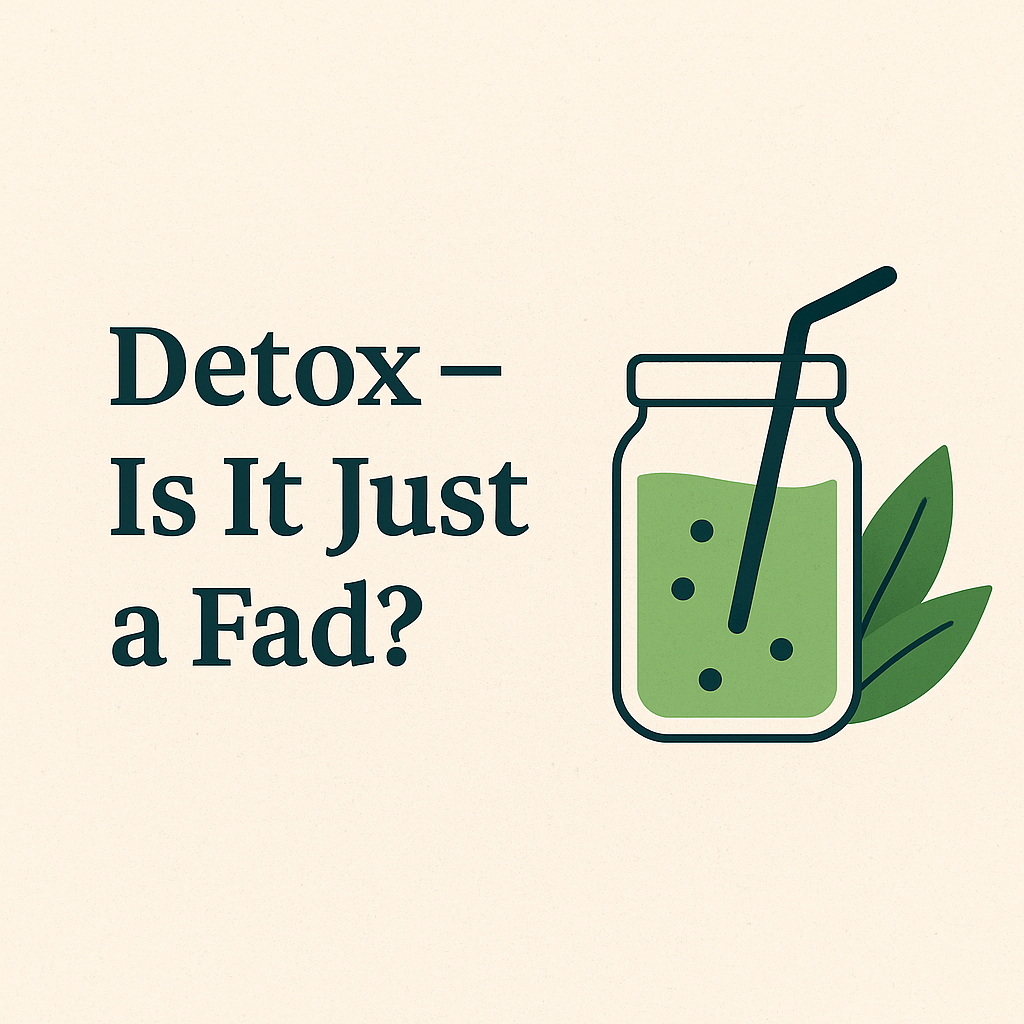“Detox” has become one of the biggest buzzwords in wellness culture. From juice cleanses to liver flushes, detox teas to colon cleanses, the idea of “flushing toxins” promises a quick health reset. But is there real science behind it, or is detox mostly a marketing fad?
What Does “Detox” Really Mean?
In alternative health, “detox” is often used vaguely — referring to programs that promise to:
-
Eliminate “toxins” from the body
-
Improve skin, energy, digestion, and mood
-
Support the liver, kidneys, or colon
-
Kick-start weight loss
The problem? These “toxins” are rarely defined. What exactly are they? Where do they come from? And how does a juice cleanse “flush” them? As Science-Based Medicine points out, detox is often a ritual of purification masquerading as medicine rather than a scientifically defined intervention.
What the Science Says
1. The Skeptical View
David Gorski, writing for Science-Based Medicine, explains that the concept of detox is rooted in outdated ideas like autointoxication — the belief that toxins build up inside us and must be purged.
While detox products claim to eliminate waste, there is no credible evidence that juice cleanses, colonics, or herbal teas remove meaningful toxins from the body. In fact, some can be harmful.
2. The Evidence Gap
The most comprehensive academic review (Klein & Kiat, 2015) concluded:
“There is no compelling evidence that detox diets remove toxins from the body or improve long-term health.”
Most detox studies are small, poorly designed, or not peer-reviewed. Reported benefits (like short-term weight loss) are usually due to water loss and calorie restriction, not toxin clearance.
3. Environmental Toxins vs. Marketing Claims
Yes, environmental toxins do exist — for example, PCBs (polychlorinated biphenyls), which persist in the environment and accumulate in fat tissue. Scientific literature also documents the bioaccumulation of other chemicals and heavy metals.
But here’s the key: popular detox diets have not been proven to eliminate these persistent pollutants. Real detoxification requires specific medical interventions (like chelation therapy for heavy metal poisoning), not lemon water or herbal teas.
The Body’s Real Detox Systems
The human body is already equipped with efficient detox systems:
-
Liver — processes drugs, alcohol, hormones, and metabolic waste
-
Kidneys — filter blood and excrete waste through urine
-
Lungs — expel carbon dioxide and volatile compounds
-
Gut — eliminates waste via stool, aided by gut microbes
-
Skin & lymphatics — minor roles via sweat and immune transport
These systems work continuously, not just when you do a 7-day cleanse. Supporting them through balanced nutrition, hydration, exercise, and sleep is far more effective than restrictive detox regimens.
Risks of Detox Programs
Detoxes are often marketed as “safe resets,” but they carry risks:
-
Nutrient deficiencies — prolonged juice cleanses lack protein and essential fats
-
Electrolyte imbalance — laxative or diuretic “detox teas” can cause dangerous shifts
-
Organ strain — some herbs used in detox products are linked to liver injury
-
Psychological harm — detox programs may reinforce guilt or disordered eating cycles
-
False sense of security — focusing on detox products may distract from proven healthy habits
When “Detox” Is Real Medicine
There are legitimate detox interventions — but only in medical contexts:
-
Activated charcoal — used in emergency rooms for certain poisonings
-
Chelation therapy — prescribed for lead or mercury poisoning
-
Dialysis — removes waste in kidney failure
-
Liver transplant — ultimate solution in end-stage liver disease
These are targeted, evidence-based, and medically supervised. They are not wellness cleanses.
Conclusion: More Fad Than Fact
-
Detox diets are popular but poorly supported by evidence.
-
Your body already detoxifies effectively on its own.
-
Short-term benefits of detoxes usually come from calorie restriction, not toxin elimination.
-
Some detox methods can be harmful rather than healing.
The takeaway? Instead of expensive detox products, focus on sustainable health practices — eating whole foods, staying hydrated, moving your body, sleeping well, and minimizing exposure to genuine pollutants.
References
-
Gorski D. Detox: Ritual purification masquerading as medicine. Science-Based Medicine.
-
US EPA. Learn about Polychlorinated Biphenyls (PCBs).
-
ScienceDirect. Persistent organic pollutants.
-
Tchounwou PB, et al. Heavy metal toxicity and the environment. EXS. 2012.

Akanksha Sharma
Dr. Akanksha Sharma, Head Writer and creator of AtoZ of Pregnancy, is dedicated to empowering women, parents, and families through 360-degree knowledge. She and her team provide evidence-based advice to guide families through pregnancy, parenting and beyond.






